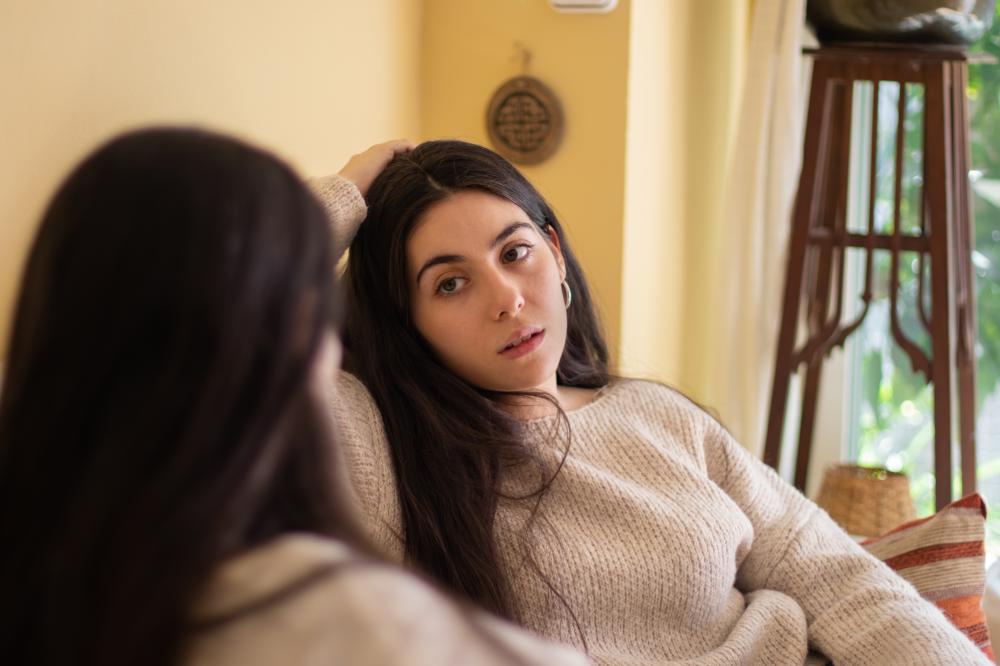The Challenge of Teen Depression
As a professional with more than two decades of experience working with teenagers, I have seen firsthand how depression can insidiously affect the young. The teenage years are already a tempest of emotions, and when depression enters the fray, it can amplify feelings of isolation and despair. Los Angeles, with its dynamic culture and vibrant yet high-pressure environment, presents a unique backdrop for teenagers grappling with this debilitating condition.
Parents often struggle to differentiate between typical teen angst and genuine clinical depression. It’s critical to recognize that this form of mental illness is not a phase but a pressing health issue that requires attention. In Southern California, resources for depression treatment for teenagers Los Angeles are plentiful, but understanding which path to take is often the most daunting first step.
Holistic Approaches to Teen Depression Treatment
Treating depression in teenagers necessitates a comprehensive approach that attends to both the emotional and physical aspects of the condition. At Solace Treatment Center, we employ a variety of therapeutic methods, integrating traditional therapy with innovative modalities to provide a balanced treatment plan. Our philosophy is rooted in evidence-based practices while embracing holistic elements that support recovery.
For instance, Cognitive Behavioral Therapy (CBT) is a cornerstone in our programs, helping young clients to identify and challenge negative thought patterns. In addition, we explore the benefits of mindfulness and yoga, which cultivate a sense of calm and focus in adolescents. These practices, often overlooked by conventional methods, have shown to be particularly effective in the diverse landscape of Los Angeles where stress is pervasive.
Art therapy is another powerful tool we employ. It allows teenagers to express emotions that they might find difficult to verbalize in traditional therapy sessions. Ultimately, our goal at Solace Treatment Center is to create a supportive environment that nurtures personal growth and resilience, ensuring that each treatment plan is as unique as the individual it serves.
What Qualifies as an Emergency Depression Treatment for Teenagers Los Angeles?
Emergency intervention becomes necessary when a teenager is at risk of harming themselves or others, or when they experience severe symptoms that impair daily functioning. In such cases, immediate professional help is imperative.
Steps to take during an emergency include:
- Contact emergency services: In any life-threatening situation, dial 911 or visit the nearest emergency room.
- Reach out to a crisis line: National or local hotlines can provide immediate support and guidance.
- Consult with a mental health professional: An urgent consultation can determine the appropriate course of action, possibly including hospitalization.
The Role of Family in Teen Depression Recovery
Family engagement is paramount in the treatment of teenage depression. Over the years, I’ve witnessed the profound impact that a supportive family can have on a teen’s recovery process. It transforms the healing journey from a solitary pursuit into a collective endeavor. At Solace Treatment Center, we encourage family therapy sessions as a means to foster open communication and understanding.
These sessions often reveal underlying dynamics and stressors that may contribute to a teenager’s depressive symptoms. By addressing these issues collectively, families can develop coping strategies that extend beyond the therapeutic setting and into their daily lives.
In Los Angeles, where the pace of life can be relentless, offering support requires intentional effort. Parents are advised to educate themselves about depression, participate in their teen’s treatment plan, and maintain a balance between being empathetic and setting boundaries. This dual approach assists in creating a stable, nurturing environment necessary for recovery.
Uncommon Insights in Teen Depression Treatment
In my extensive career, I’ve learned that innovation often arises from addressing the less explored facets of treatment. While mainstream methods are effective, there are alternative practices that deserve attention. For instance, incorporating nutrition and lifestyle changes into our therapeutic framework has yielded positive outcomes.
The connection between diet and mental health is increasingly recognized. Diets rich in omega-3 fatty acids, for example, can support brain health and potentially alleviate depressive symptoms. Encouraging a shift in lifestyle, such as increased physical activity, can enhance the effectiveness of traditional therapy by releasing endorphins that naturally boost mood.
Another valuable insight is the role of peer support. At Solace Treatment Center, we facilitate group therapy sessions where teens can connect with peers facing similar struggles. These bonds, forged in understanding and shared experiences, often become pivotal in a teenager’s recovery journey, providing a sense of belonging that is essential during adolescence.
- Nutrition as a support tool in depression treatment
- Integration of lifestyle changes alongside therapy
- The power of peer support and group therapy
Choosing a Depression Treatment for Teenagers Los Angeles Facility
With an abundance of resources available in Los Angeles, selecting the right treatment facility for a teenager can be overwhelming. It’s essential to consider factors such as the facility’s approach, the expertise of its staff, and the types of therapy offered. At Solace Treatment Center, we pride ourselves on our commitment to personalized care plans designed to meet the specific needs of teenagers.
Visiting potential centers can provide valuable insight into their environment and philosophy. Speak with the therapists and staff, as their approachability and professionalism are key indicators of the level of care your teenager will receive. Moreover, assess the facility’s accreditation and the testimonials of previous clients to gauge the quality of their services.
Remember, the goal is to find a place that not only addresses the symptoms but also empowers the teenager to thrive amidst life’s challenges. The right treatment center doesn’t just provide guidance; it lays a foundation for resilience and hope.
What are the key differences between typical teen angst and clinical depression, and how can parents in Los Angeles identify these distinctions?
Teen angst is a common experience characterized by mood swings and irritability due to hormonal changes and social pressures. However, clinical depression is more pervasive and persistent, impacting all aspects of life. In Los Angeles, where life can be high-pressure, distinguishing between the two is vital. Clinical depression often involves prolonged sadness, loss of interest in activities, sleep disturbances, and even changes in appetite. At Solace Treatment Center, we encourage parents to look out for these signs and seek professional help if they notice significant changes in their teen’s behavior. It’s not just a phase, and early intervention can make a significant difference.
Raising awareness among parents about these differences could prompt earlier intervention and prevent the escalation of symptoms. Have you had experiences where recognizing the signs early on made a difference in your life or someone you know?
How do holistic approaches enhance depression treatment for teenagers in Los Angeles?
Incorporating holistic approaches in depression treatment can be especially beneficial in a bustling city like Los Angeles. At Solace Treatment Center, we integrate methods such as Cognitive Behavioral Therapy with mindfulness practices and yoga. These techniques address both the emotional and physical facets of depression, helping teens find calm amidst chaos. For example, mindfulness can reduce stress and improve emotional regulation, while yoga can enhance body awareness and relaxation. These holistic approaches offer teens tools to manage their depression and cope with everyday challenges, ultimately fostering resilience and personal growth.
What holistic methods have you heard of or tried in managing stress or mental health? Share your experiences!
What constitutes an emergency depression treatment situation for teenagers, and what steps should be taken in Los Angeles?
An emergency situation typically involves a teenager at risk of self-harm or experiencing severe symptoms that impair functioning. Immediate steps include contacting emergency services by dialing 911, reaching out to crisis hotlines for immediate guidance, and consulting mental health professionals for urgent intervention. In Los Angeles, Solace Treatment Center emphasizes the importance of these actions to ensure immediate and effective support. The goal is to stabilize the teenager safely and then explore long-term treatment options. Always take any sign of distress seriously and act promptly to safeguard their wellbeing.
If you ever had to deal with an emergency situation, what steps did you find most helpful? Your stories could offer insights or reassurance to others in similar situations.
Why is family involvement crucial in a teenager’s recovery from depression, and how can families in Los Angeles support their teen effectively?
Family involvement is crucial because it transforms recovery from a solitary journey into a collective one. At Solace Treatment Center, we have seen how family therapy can uncover dynamics that contribute to depressive symptoms and help develop coping strategies. In Los Angeles, a city that can be both exhilarating and overwhelming, families can support their teen by staying informed, participating in treatment plans, and maintaining a balance between empathy and boundaries. This approach creates a nurturing environment essential for recovery. Encouraging open dialogue and support can make a profound impact on a teen’s mental health trajectory.
Think about your family dynamics–how do they affect your mental well-being, and what changes could foster a more supportive environment?
What are some lesser-known yet effective strategies in the treatment of teen depression that Solace Treatment Center offers?
At Solace Treatment Center, we’ve found success with strategies that aren’t always front and center in traditional treatment plans. We emphasize dietary changes, such as increasing omega-3 fatty acids, which support brain health. Coupling these with lifestyle changes like boosted physical activity can significantly enhance therapy outcomes. Another powerful, often overlooked component is peer support. Through group therapy, teens forge connections with peers experiencing similar challenges, providing a sense of community and shared understanding. These elements, though less conventional, play a pivotal role in comprehensive care and recovery.
Have you considered any of these strategies as part of your mental wellness journey? How did they work for you, or what intrigues you about them?
What factors should be considered when choosing a teen depression treatment facility in Los Angeles?
When selecting a treatment facility, consider their therapeutic approaches, staff expertise, and types of therapy offered. At Solace Treatment Center, our commitment to personalized care is foundational. It’s essential to visit potential centers, meet the staff, and understand their philosophy. Accreditation and client testimonials also provide insights into service quality. Choosing a facility is about finding a place that not only addresses symptoms but also cultivates resilience. The right environment can significantly impact a teen’s recovery journey and long-term success.
What criteria would be most important to you in choosing a mental health facility? Your priorities could guide others in making informed decisions.
Why might traditional therapy methods be supplemented with holistic practices in depression treatment?
Traditional therapy methods, while effective, often benefit from holistic practices that address the multifaceted nature of depression. In a diverse city like Los Angeles, where stress is a common backdrop, holistic practices like yoga, mindfulness, and art therapy provide additional avenues for expression and relief. Solace Treatment Center incorporates these to complement traditional approaches, helping teens navigate their emotions in a comprehensive way. This integration not only supports recovery but encourages personal growth and resilience, preparing teens for future challenges.
Have you ever tried integrating holistic practices into your life? What impact did it have on your stress or mental health?
How do lifestyle changes play a role in the treatment of teen depression, and what specific changes are recommended?
Lifestyle changes can significantly influence the effectiveness of depression treatment by creating a supportive environment for recovery. At Solace Treatment Center, we recommend incorporating physical activities that boost endorphins, enhancing mood naturally. Dietary modifications, such as increasing nutrient-rich foods, can support overall brain health. Encouraging regular sleep patterns and reducing screen time can also help stabilize mood. These changes, although seemingly small, often have profound effects on a teenager’s emotional well-being, complementing therapeutic interventions.
What lifestyle habits have you found to positively impact your mood and mental health? Sharing your experiences could spark ideas for others.




